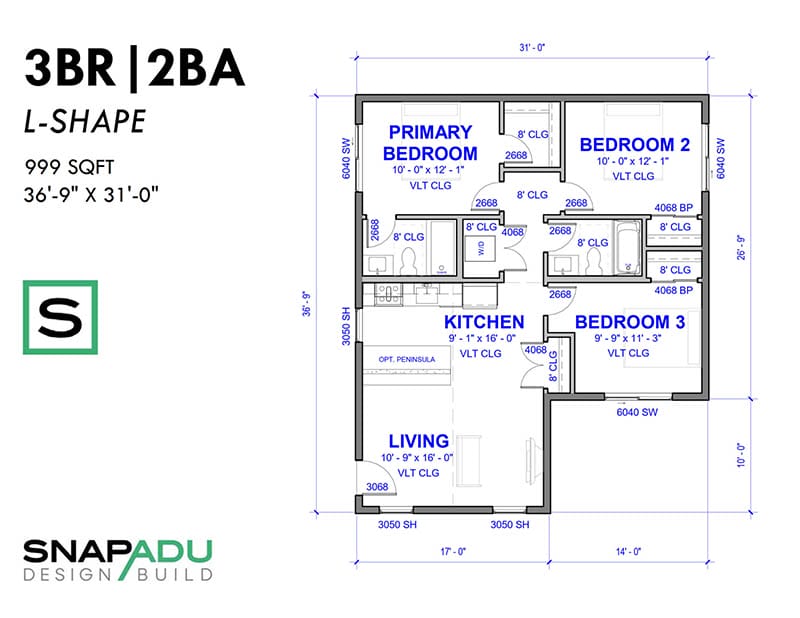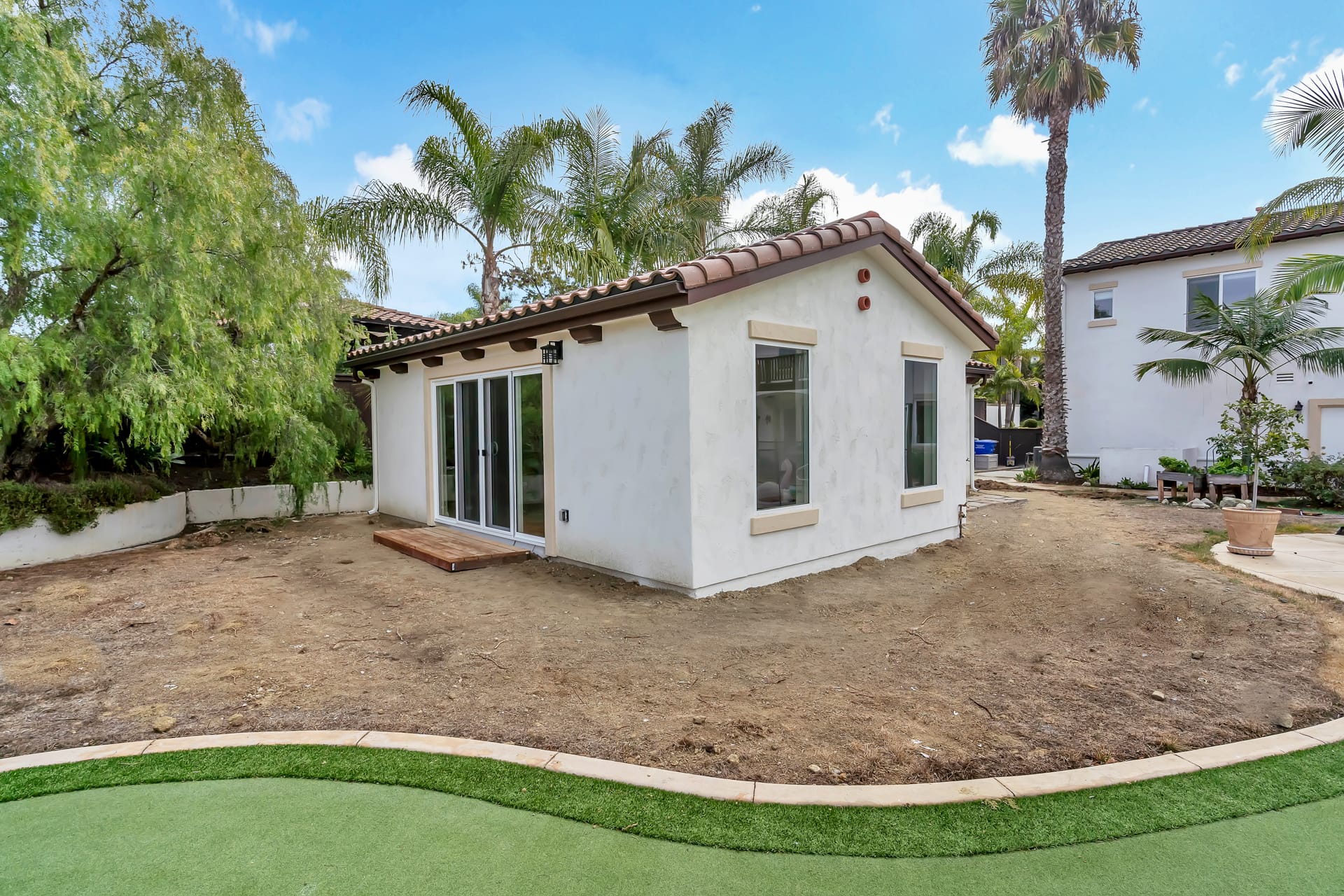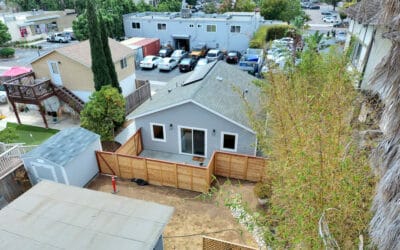When planning to build an Accessory Dwelling Unit (ADU), obtaining and comparing quotes from different builders is a crucial step. ADU quotes should provide a detailed estimate of the costs involved in your project. The proposal will help you understand what to expect in terms of scope, cost and timeline. Comparing ADU quotes is essential to ensure you get the best value for your investment. It helps you identify discrepancies, understand what is included, and make an informed decision based on detailed cost breakdowns. It’s important to understand what will be included in your proposal, and how the agreement is structured.
Key Factors to Compare in ADU Quotes
When comparing ADU quotes, it’s important to consider several key factors to ensure you are truly comparing “apples to apples.” Ensuring you are comparing apples to apples means verifying that all quotes include the same scope of work, material specifications, timelines, and payment terms. This ensures that you make an informed decision based on an accurate & realistic comparison of what each builder is offering. Getting to this level of understanding requires a thorough review and sometimes going back to the builders for clarification. You will also learn a lot about their working style as you get into these kinds of details.
Here are the crucial aspects to examine:
Scope & Cost Breakdown
Make sure each quote provides a detailed scope of work and cost breakdown. There are many different types of ADU costs that you should prepare for in your budget. You should see the following components:
- Feasibility, Design & Site Assessment. Initial assessments to determine the feasibility of building an ADU on your property. It covers site plans, mapping existing utilities, assessing electrical panel loads, and creating a feasibility report.
- Construction Drawings. Comprehensive construction documents tailored to your property specifics, which are required to get a permit from the city. This includes architectural design, structural engineering, T24 calcs, building code compliance, permit expediting, and any necessary revisions to get your ADU permitted.
- Permits & Fees. Covers necessary permits and fees required by local authorities. This includes building permits, impact fees for larger units, school fees, and sewer connection fees.
- General Conditions. Preliminary and ongoing steps required for site protection, temporary facilities, soils compaction testing, energy efficiency testing, and final cleaning to ensure the ADU is move-in ready.
- Site Work. Site preparation costs to create a buildable pad for the ADU. This includes trenching for utilities and grading for proper drainage. You may also need additional site work required due to property features or jurisdictional requirements, such as demolition or retaining walls.
- Vertical Building Construction. The cost for constructing the ADU itself, including the foundation, structure, standard finish materials, and warranty. This encompasses all the building materials and labor necessary to complete the ADU.
- Finish Material Upgrades. Optional upgrades from standard finishes to higher-end options, such as premium appliances, tiled showers, and custom cabinetry. This allows for personalization of the ADU to meet specific preferences and needs.
- Utility Upgrades. Costs for additional utility requirements, including separate electric meters, solar panels, and any necessary sewer and water planning. This ensures the ADU meets all utility standards and requirements.
A clear itemization allows you to see exactly what is assumed to be in scope and helps you identify any discrepancies between quotes. Without this level of detail, it’s easy to overlook hidden costs or assume inclusions that may not be there.
Review the scope of work outlined in each quote. This includes specific tasks the builder will complete, plus any specifics that you as the homeowner will be responsible for completing. Ensure all necessary tasks are included to avoid unexpected expenses later.
Materials & Quality
Compare the quality and type of materials specified in the quotes, particularly for finishes. Higher quality materials may have a higher upfront cost but can save money in the long run due to durability and reduced maintenance. Ensure that each quote specifies the brands, models, and types of materials to be used, as this can significantly impact the overall cost and quality of the project. Read more about standard home features.
Timeline & Project Duration
Check the estimate of how long it will take to design, permit & build the ADU. A realistic timeline is crucial to ensure the project stays on track and within budget. Be wary of quotes that promise an unrealistically short timeline. Projects rushed to meet tight deadlines can result in subpar workmanship and missed details. Ensure each quote includes a detailed project schedule with key milestones.
Companies that have completed many different ADU projects in your jurisdiction will also have a better picture of how long to expect for permitting.
Payment Terms and Conditions
Understand the payment schedule and terms outlined in the quotes. Payments should be based on progress, with milestone payments as the project advances. Clear payment terms help avoid disputes and ensure smooth project progress. Compare the terms to ensure they align with your financial planning and that they are fair and reasonable. Look for quotes that require payments as specific project milestones are completed, ensuring you only pay for work that has been satisfactorily completed up to that point.
Common Pitfalls to Avoid in ADU Quotes
Receiving multiple quotes for your ADU project is an exciting step forward, but it can also be overwhelming. How do you navigate through the details and make the best choice? To help you, let’s look at some common pitfalls to avoid when comparing ADU quotes:
Low-Cost Quotes
Choosing the lowest bid can be tempting, but it often comes with risks. Lower quotes can omit critical aspects of the project, use substandard materials, or unpermitted labor. They may also fail to budget adequately for warranties and after-project care. Avoid contractors who don’t provide clear pricing during your consultations. This can be a sales tactic, or it might indicate that they don’t fully understand the scope required to permit and build the ADU. Find a contractor who informs you of the true project cost from the beginning so you can plan accordingly.
Additionally, look for a price lock agreement that specifies how long the quoted price will be held. This ensures that you won’t face unexpected cost increases due to delays or extended timelines in securing permits. Verify every detail to ensure that each quote provides a complete and accurate representation of what will be delivered.
Hidden Costs
Look for hidden costs that might not be immediately apparent. For an overview, check out our list of the dozens of hidden cost factors to check for. Building an ADU involves an upfront investment in feasibility to truly understand the full project cost. Accurately anticipating the full cost of your ADU involves a lot of work. But it’s essential to accurately anticipate these expenses to avoid unexpected surprises later on.
Comprehensive feasibility studies, including utility mapping, topographical surveys, and an understanding of jurisdictional requirements, are necessary to uncover potential hidden costs. Ensure your builder provides a detailed and transparent quote that includes these considerations to plan your project effectively and avoid financial surprises.
Over-Promising
Be cautious of builders who over-promise. This can include guarantees of quick completion, exceptionally low costs, or superior quality without a proven track record in the ADU space. Verify their claims with references and reviews of previous similar projects to ensure they can deliver on their promises. A builder who is honest about timelines and potential challenges will ultimately provide a more reliable and satisfactory outcome.
Tips for Comparing the Quotes & Making the Final Decision
Here are some expert tips for comparing ADU quotes and making the right decision:
Comparing Apples to Apples
Ensure you are comparing similar elements in each quote. Look for consistency in the scope of work, materials, and other factors to make a fair comparison.
Negotiating with Builders
Don’t hesitate to negotiate with builders. Discuss the quotes in detail and ask for adjustments where necessary. Builders are a resource and can help you scope a project that you can build on budget.
Scheduling Multiple Consultations
Meet with several builders to discuss your project. Multiple consultations can provide different perspectives and help you gauge the builder’s understanding and enthusiasm for your project.
Verifying Builders’ Credentials
Check the credentials of each builder, including licenses, insurance, and certifications. Verify their track record by reviewing previous projects and speaking with past clients.
Trusting Your Instincts
Trust your instincts when choosing a builder. A good working relationship and clear communication are crucial for a successful project. Choose a builder who listens to your needs and demonstrates professionalism.
Why Should You Consider Snap ADU for your ADU Project?
Snap ADU stands out as a premier choice for ADU projects in San Diego due to our comprehensive approach and proven track record. Our experienced in-house team of experts handles everything from design to construction, ensuring a seamless process and high-quality results.
Interested in learning more about how Snap ADU can help with your ADU project? Contact us to schedule a consultation and get started on bringing your ADU vision to life.






0 Comments